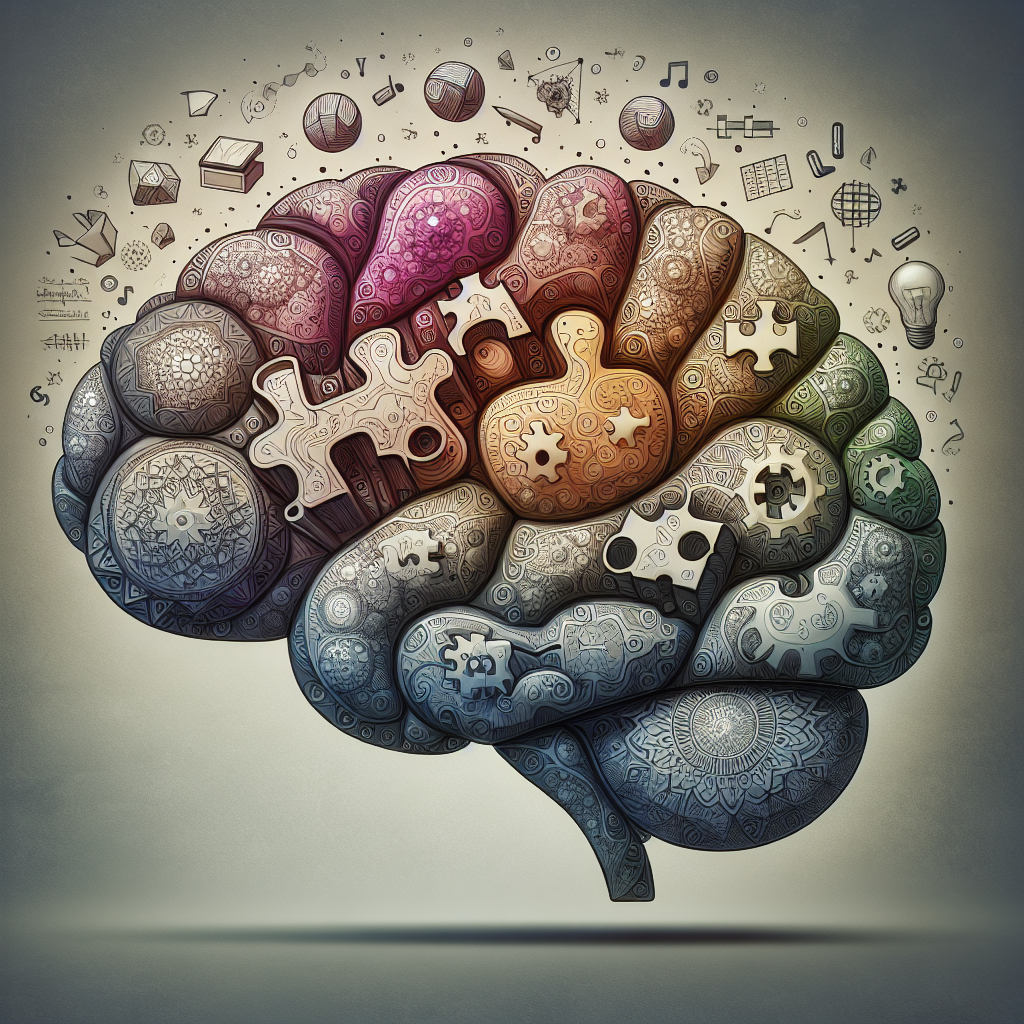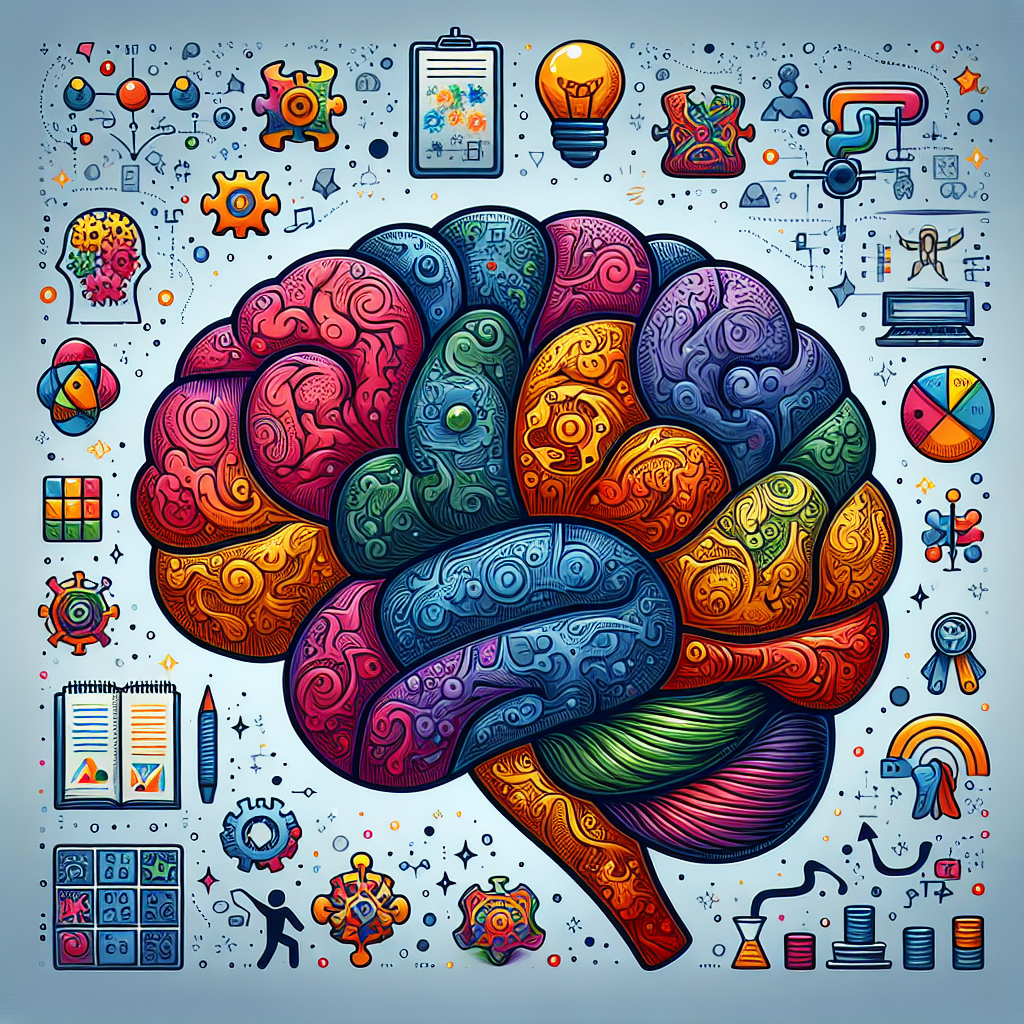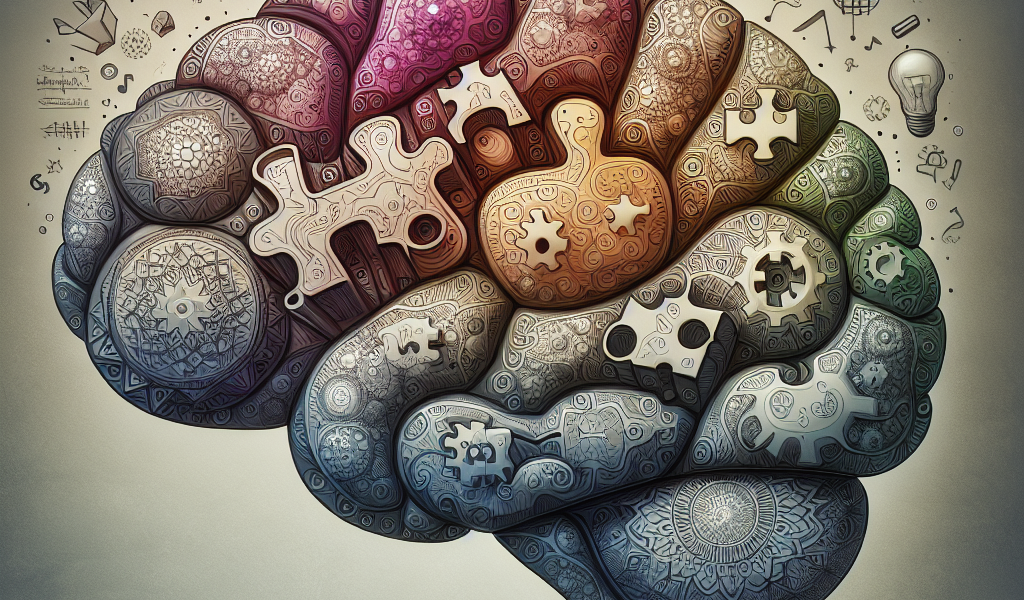Are There Any Scientifically Proven Studies That Support The Effectiveness Of Brain Training Exercises?
You’re about to explore the fascinating world of brain-boosting exercises and their potential to enhance your cognitive functions. Don’t just take the word of companies that promote these exercises; let’s explore whether scientific studies validate their claims. This article will take you through some of the most recent research around brain training exercises, shedding light on their effectiveness, and help you determine if they’re indeed a beneficial tool for brain health.

Understanding the Concept of Brain Training
Brain training, as the name suggests, is the act of training the brain to improve cognitive functions. Like you would exercise your muscles to enhance physical strength, brain training essentially aims to improve your mental abilities in perception, memory, problem-solving, etc., in a structured and intentional manner.
Defining Brain Training
In layman’s terms, brain training is a type of exercise for the brain to help it perform better. Combining scientifically supported theories and practical methodologies, these exercises target certain cognitive aspects such as memory, attention, and problem solving. The scope of brain training isn’t just confined to boosting cognitive performance; it also extends to improving the overall functioning of the brain.
Origins and Developments in Brain Training
Historically, brain training has its roots in both neuroscience and psychology. The idea originated from the belief that cognitive performance can be improved using targeted mental exercises. Over the years, refinement in scientific methods and better understanding of brain function has led to an evolution of brain training approaches. Hand-in-hand with technological advancements, various brain training exercises and programs have emerged, each with its distinctive traits and objectives.
Types of Brain Training Exercises
There are numerous types of brain training exercises. These can be broadly categorized into memory training, attention training, processing speed training, and problem-solving training, among others. Each type focuses on a specific cognitive function, and a comprehensive brain training program usually encompasses exercises from all these categories.
How Brain Training Exercises Work
The process of brain training is not as straightforward as physical training. It involves a complex interplay of cognitive abilities, specific processes, and theoretical frameworks.
Understanding Cognitive Abilities
Cognitive abilities refer to the various functions of the brain that enable us to process information, solve problems, and make decisions. These abilities form the foundation of our thoughts, experiences, and actions, and brain training aims to enhance these abilities through systematic and targeted exercises.
Processes Involved in Brain Training
Several processes are involved in brain training, including repeated exposure to stimuli, enriched environment, active learning, and goal-directed behavior. These processes lead to synaptic plasticity, a condition that allows the neurons in our brains to adjust their activities in response to new situations or changes in the environment, leading to increased cognitive prowess.
Theoretical Bio-Cognitive Framework
Brain training operates within a theoretical bio-cognitive framework that postulates a reciprocal relationship between cognition and biological conditions. The basic premise is that the brain can change and adapt, resulting in enhanced cognitive abilities. This theory, known as neuroplasticity, is the cornerstone of all brain training exercises.
Common Brain Training Exercises and Their Proposed Benefits
Various brain training exercises each have their distinctive benefits.
Memory Training
Memory training exercises are designed to improve your ability to remember information. They often involve tasks that require recall, such as crossword puzzles and memory card games. The benefits of memory training can extend to a multitude of daily tasks, from remembering shopping lists to retaining instructions.
Attention Training
Attention training exercises aim to enhance your ability to focus on relevant information while ignoring distractions. These exercises may involve tasks that require sustained focus or the rapid shifting of attention. The proposed benefits of attention training could help you stay focused on important tasks and efficiently switch your attention when necessary.
Processing Speed Training
Processing speed is the rate at which you can understand and respond to information. Processing speed training exercises often involve tasks that need to be completed as quickly as possible. Over time, these exercises can help you become quicker at processing information, enhancing productivity and efficiency.
Problem-Solving Training
Problem-solving training focuses on improving your ability to solve problems and make decisions. These exercises typically involve puzzles or tasks that require strategic thought. The benefits of problem-solving training can improve your ability to handle challenges and solve problems in everyday life.

Controversies Surrounding Brain Training
Despite the benefits associated with brain training, there are controversies surrounding its effectiveness.
Public Perception and Skepticism
Some people are skeptical of brain training. They believe that while these exercises may be fun and engaging, they are not necessarily efficacious in improving cognitive function or slowing age-related cognitive decline.
Neuroscientists’ Opinions on Brain Training
Similarly, some neuroscientists dispute the claims made by brain training programs. They argue that while certain cognitive skills can improve through specific exercises, this improvement does not necessarily generalize to other cognitive functions or everyday tasks.
Problems and Limitifications of Brain Training Research
Brain training research faces several challenges. Study designs can be flawed, sample sizes may be small, and many studies fail to use valid control groups. Additionally, outcomes are often self-reported, making them susceptible to bias.
The Impact of Brain Training on Aging
The aging process naturally affects cognitive abilities. However, brain training is being looked into as a potential strategy to mitigate these effects.
The Aging Brain
As you age, the brain undergoes physiological changes that can lead to decreased cognitive function. This normally includes memory decline and slower processing speeds.
Beneficial Effects of Brain Training on Cognitive Aging
several studies have suggested that regular and targeted brain training can help slow age-related cognitive decline. The idea is that by keeping the brain actively engaged, cognitive functions can remain robust for a longer period.
Limitations and Challenges
However, the impact of brain training on the aging brain is still a topic of ongoing debate in the scientific community. Not all studies show positive effects, and the extent of the benefits seen varies greatly among individuals.
Insight into Notable Scientific Studies on Brain Training
Several significant studies have investigated brain training, each with its approach and findings.
ACTIVE Study
The ACTIVE (Advanced Cognitive Training for Independent and Vital Elderly) study was a large-scale trial that showed improvements in targeted cognitive abilities among older adults who underwent specific cognitive training.
IMPACT Study
The IMPACT study found that adults who underwent cognitive training showed improvement in global cognitive function, compared with a control group that did not receive training.
Synapse Project
The Synapse project is a large-scale study investigating the impact of brain training on cognitive function. It showed that engaging in brain-challenging activities can lead to improvements in cognitive function amongst the elderly.
Brain Training and Neurological Disorders
Brain training isn’t only beneficial for healthy brains; it also has potential benefits for those affected by certain neurological disorders.
Brain Training in Dementia and Alzheimer’s
Studies have suggested that brain training might delay or lower the risks of cognitive decline associated with dementia and Alzheimer’s disease. However, more research is needed to verify these claims.
Impact of Brain Training on ADHD
Similar advantages of brain training are also seen in attention deficit hyperactivity disorder (ADHD). Regular attention training exercises have shown potential improvements in attention span and focus of individuals with ADHD.
Brain Training and Stroke Rehabilitation
After a stroke, brain training exercises can stimulate the brain and help restore cognitive function. These exercises can assist the brain in ‘relearning’ lost skills and establishing new communication pathways to compensate for damaged areas.
Effectiveness of Digital Brain Training
The digital age has brought brain training exercises into our palms through various apps. However, their effectiveness is still debated.
Review of Popular Brain Training Apps
Brain training apps such as Lumosity, Elevate or Peak promise to improve cognitive abilities through games and puzzles. They tend to be user-friendly, with graphics and scores that make the training seem more like playing.
Scientifically Proven Efficacy of Digital Brain Training
Some app-based brain training programs have been scientifically validated. Meaning, they show proven results for individuals who use the app regularly, across a range of cognitive abilities.
Controversies Regarding Digital Brain Training
However, just like traditional brain training exercises, digital ones have also stirred controversy. Critics argue that playing brain games on a screen does not necessarily translate to improvement in overall brain function or everyday tasks.
Critique of the Methodologies Used in Brain Training Research
A critical look at brain training research designs and methodologies to understand their shortcomings.
Assessment of Study Designs
Most studies are conducted on a small scale and in controlled settings, which do not necessarily mirror real-life situations. The gains observed in these studies may not translate into meaningful changes in everyday life.
Issues with Measurement and Statistics in Research
Issues like variability in cognitive measures, lack of control groups, and relying on self-report measures can distort the results of brain training studies. These factors can make it difficult to determine if the observed results are due to brain training or other environmental factors.
Reflection on Study Replicability and Transparency
Replicability and transparency have been serious concerns in several brain training studies. Some studies don’t provide adequate details about the training program, which makes replicating the study and verifying the results difficult.
Future Directions in Brain Training Research
Despite criticism and skepticism, there is potential for future advancements in brain training research.
Unexpected Opportunities in Brain Training
Further investigation of brain training could lead to unexpected opportunities, like discovering new cognitive phenomena or better understanding how the brain functions. It might also provide deeper insights into effective learning strategies.
Potential for Combine Strategies
In the future, combining brain training exercises with other cognitive enhancement strategies like physical exercises, a healthy diet, and stress management could lead to extensive cognitive improvements.
Opportunities for Personalized Brain Training
As our understanding of cognitive abilities develops, personalized brain training could become a reality. Tailoring exercises to individual cognitive profiles could help in maximizing the benefits associated with brain training.

